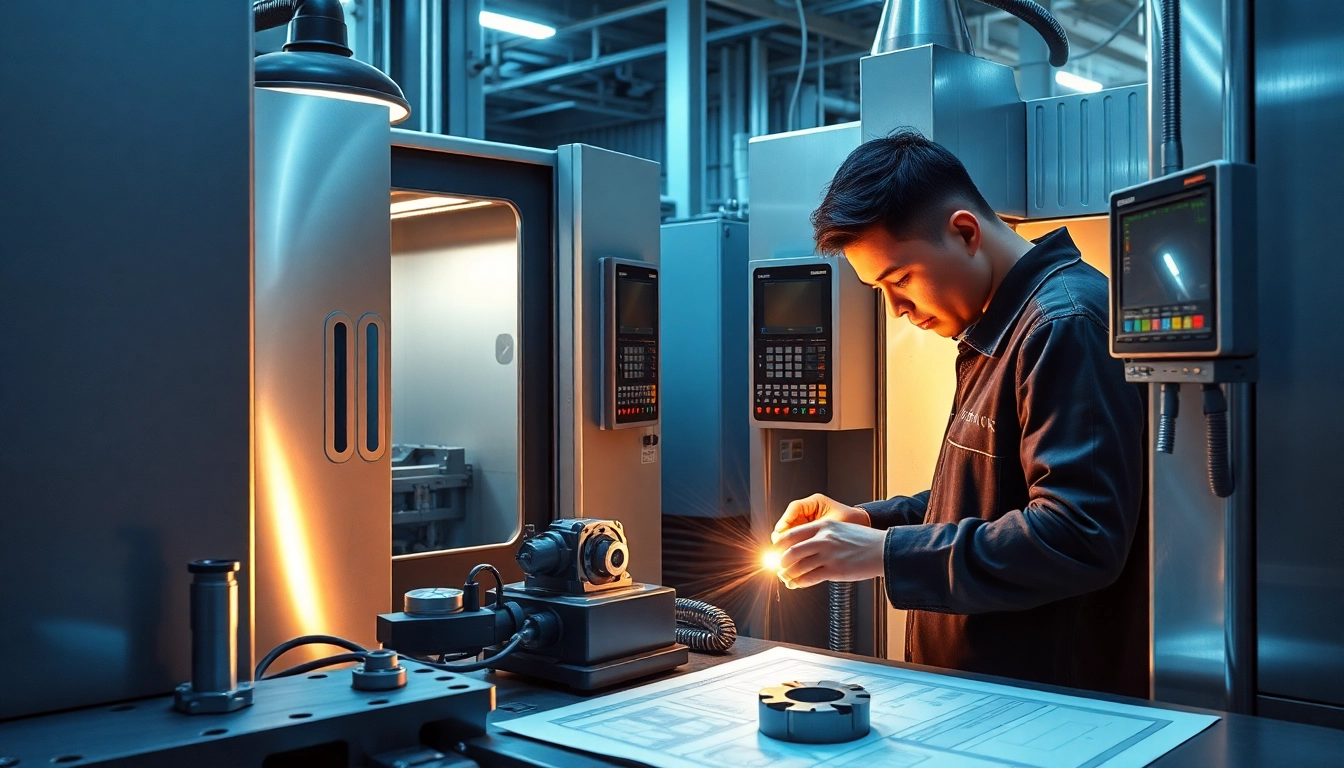Understanding Precision Machining in Malaysia
Precision machining is a pivotal process in modern manufacturing, especially in Malaysia, where industries are rapidly evolving. The country’s strategic location, skilled workforce, and robust infrastructure position it as a significant player in the global machining landscape. As we delve into the nuances of precision machining in Malaysia, we will explore its definition, technological advancements, and the critical role it plays in diverse sectors such as automotive, aerospace, and electronics. For those interested in understanding the industry better, precision machining malaysia offers numerous insights and resources.
What is Precision Machining?
Precision machining refers to a set of manufacturing processes that utilize computer numerical control (CNC) technology to produce high-tolerance components from various materials, including metals and plastics. This process is essential for creating detailed parts that require exact specifications, often within a few microns of accuracy. The precision can significantly impact the functionality and lifespan of components across different applications, making precision machining a critical aspect of manufacturing.
Overview of Precision Machining in Malaysia
Malaysia has emerged as a hub for precision machining thanks to its competitive advantages such as affordable manufacturing costs, a wealth of natural resources, and government support for technological innovation. The country’s precision machining sector is characterized by a mix of local SMEs and international corporations, all contributing to a rich ecosystem of manufacturing capabilities.
Key Technologies in Precision Machining
- CNC Machining: The backbone of modern machining, CNC technology enables the fabrication of intricate designs with high repeatability.
- 3D Printing: This additive manufacturing technique complements traditional methods, allowing for quick prototyping and production of complex geometries.
- Laser Cutting: This technology provides high precision and versatility, often used in applications ranging from automotive to consumer electronics.
The Importance of Quality Control in Precision Machining
Quality control is paramount in precision machining. It ensures that every component meets stringent specifications and standards, which is crucial for maintaining customer satisfaction and compliance with industry regulations. Implementing effective quality assurance practices can reduce waste, increase efficiency, and enhance the reputation of machining firms.
Best Practices for Quality Assurance
- Routine Inspections: Regular checks during the manufacturing process help identify potential defects early.
- Statistical Process Control: Utilizing data analytics to monitor processes ensures consistent quality over time.
- Employee Training: Investing in employee skills increases awareness of quality standards and best practices.
Common Quality Control Pitfalls and Solutions
Despite best efforts, machining companies may encounter quality control challenges. Common issues include inadequate training, lack of standardized procedures, and insufficient inspection tools. Addressing these pitfalls involves comprehensive training programs, the implementation of standardized operating procedures, and investing in advanced measurement tools.
Case Studies Demonstrating Quality Improvement
Several Malaysian companies have successfully enhanced their quality control processes. For instance, a local aerospace manufacturer adopted advanced statistical techniques, which led to a 30% reduction in defects over a six-month period. This case highlights the effectiveness of leveraging data in improving machining quality.
Innovative Trends Shaping Precision Machining in 2025
The future of precision machining is poised for transformation, driven by technological advancements and shifting market demands. By understanding these trends, businesses can better position themselves for success in a competitive landscape.
Emerging Technologies in Precision Machining
- Artificial Intelligence (AI): AI is streamlining operations and enhancing decision-making processes, allowing for predictive maintenance and smarter resource allocation.
- Augmented Reality (AR): AR technologies are aiding in training and troubleshooting, providing real-time visual data to operators.
- Internet of Things (IoT): IoT devices are enabling smarter factories, connecting machinery, and providing critical data for operational insights.
Sustainability Practices in Manufacturing
As the world increasingly focuses on sustainability, precision machining in Malaysia is adopting greener practices. This includes reducing waste through lean manufacturing, employing recyclable materials, and implementing energy-efficient processes. Manufacturers who embrace sustainability not only comply with regulations but also enhance their market appeal.
The Rise of Automation and Robotics
Automation is revolutionizing the precision machining sector. By integrating robotics, companies are achieving higher production rates and improved consistency. Automation also helps mitigate labor shortages, providing a solution to one of the industry’s significant challenges.
Challenges Faced by Precision Machining Companies
While opportunities abound, precision machining companies in Malaysia face several challenges that can hinder growth and profitability. Understanding these hurdles is crucial for long-term sustainability.
Common Misconceptions in Precision Manufacturing
A prevalent misconception is that precision machining is only relevant for high-tech industries. However, precision components are vital across various sectors, including agriculture, construction, and medical devices.
Navigating Economic Challenges
The global economic landscape affects manufacturing operations. Factors like fluctuating material costs and currency exchange rates can impact profitability. Precision machining companies must develop strategies to manage these economic variables effectively.
Addressing Skills Gaps in the Workforce
The skills gap in the manufacturing sector is a pressing issue. As technology advances, the need for skilled labor increases. Companies can address this by investing in workforce development programs and partnerships with educational institutions to create a pipeline of qualified talent.
Future-Proofing Your Precision Machining Business
To remain competitive, precision machining businesses must strategize for the future. This includes adopting innovative practices and preparing for industry shifts.
Developing a Strategic Roadmap
A well-defined strategic roadmap can guide precision machining companies in navigating challenges and seizing opportunities. This involves setting clear goals, identifying key performance indicators (KPIs), and aligning resources effectively.
Investing in Training and Development
Ongoing training and professional development are essential in the fast-evolving precision machining industry. Companies should prioritize skill enhancement programs that align with technological advancements and industry demands.
Measuring Success in Precision Machining Operations
Measuring success goes beyond financial metrics; it encompasses quality, efficiency, and customer satisfaction. Companies should implement comprehensive performance metrics to evaluate their operations continually.
